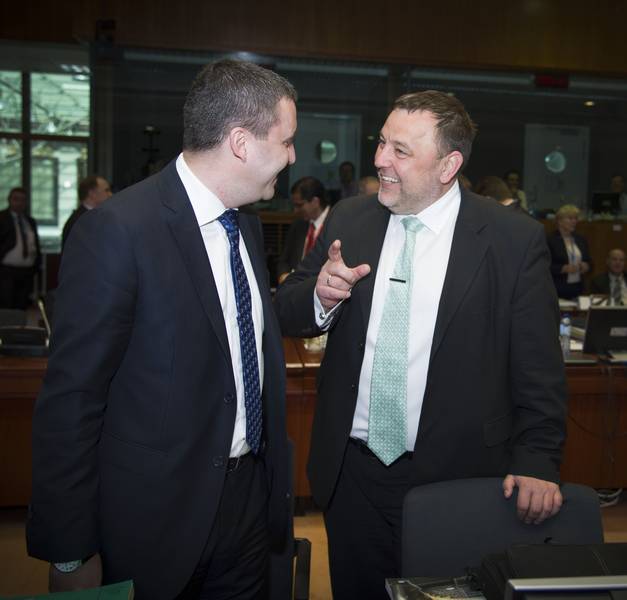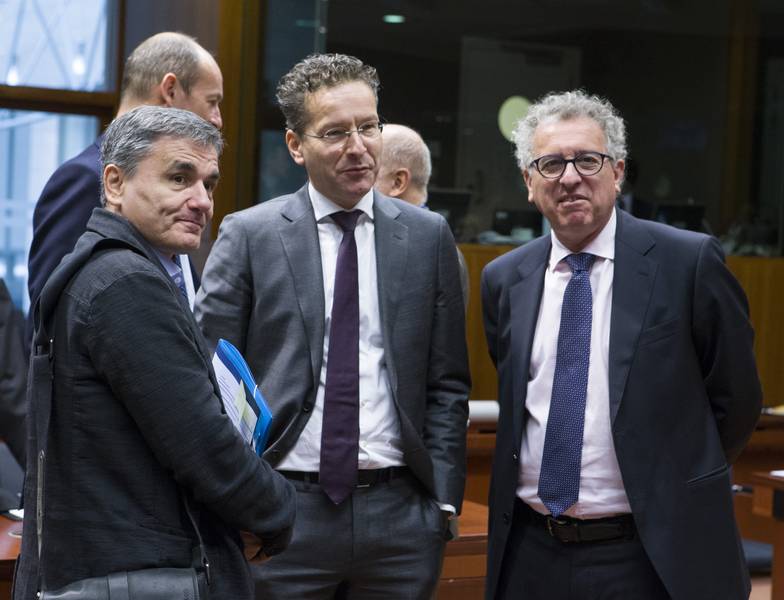The EU Has Struck a Deal on the OTC Derivatives Regulation
Ralitsa Kovacheva, February 14, 2012
 The European Parliament and the Council of EU finance ministers have agreed on the new legislation, aimed at regulating trade of over-the-counter (OTC) derivatives. The negotiations between the two institutions began in early October last year. A year earlier, in September 2010 the European Commission presented its proposal, which became the basis for adoption of positions by the Parliament and the Council and then - for negotiations.
The European Parliament and the Council of EU finance ministers have agreed on the new legislation, aimed at regulating trade of over-the-counter (OTC) derivatives. The negotiations between the two institutions began in early October last year. A year earlier, in September 2010 the European Commission presented its proposal, which became the basis for adoption of positions by the Parliament and the Council and then - for negotiations.
The purpose of the legislation is to ensure greater transparency of the OTC derivatives trading. These are a kind of betting on the future value or status of the underlying asset to which it refers (e.g. the development of interest rates or of a currency value, or possible bankruptcy of a debtor). The problem with these transactions is that, unlike stock market operations, there is a lack of any information who sells what, how and to whom. It is believed that these instruments have contributed substantially to the financial crisis because their trade is not regulated in any way, while their volume is enormous - in 2009 the total value was 425 trillion euro.
Under the new rules traders of OTC derivatives in the EU should report their deals to central data centres, known as trade repositories. They, in turn, will communicate this information to the European Securities and Markets Authority (ESMA|. "The era of opacity and shady deals is over," EU Internal Market and Services Commissioner Michel Barnier said pathetically. Bringing derivative contracts to light will help not only the regulators, but also the politicians to have better insight into the processes so events like the Greek debt crisis, for example, could be predicted and controlled.
For the sake of greater certainty, OTC derivatives that are standardised (i.e. they have met predefined eligibility criteria), such as a high level of liquidity, should be cleared through central counterparties (CCPs). CCPs (clearing houses) are entities that interpose themselves between the two counterparties to a transaction and thus become the “buyer to every seller”, as well as the “seller to every buyer”. The aim is to prevent default of a player to cause a "chain reaction" that would endanger the entire system.
It is difficult to say exactly on what grounds the compromise has been reached before seeing the final text of the new rules. It is known that there were several contentious moments: the scope of the regulation - whether it covers all derivatives or only OTC derivatives, as well as the exemptions; the powers of ESMA; the rules for clearing. According to the announcement of the European Parliament, all derivative contracts should be reported to central depositories, but only OTC derivatives are subject to obligatory clearing. It has long been known that London has a different opinion on the issue, insisting the new rules to be applied to all derivatives not only to OTC derivatives and national regulators to remain responsible for the clearing of most transactions.
Although according to the Parliament's press release a stronger role of the European  regulator has been secured in terms of authorisation of CCPs, the Group of Greens in the EP said that "at the insistence of the UK, the ESMA would only be able to overrule the decision of a national regulator on the basis of unanimity”. The board of the European authority consists of representatives of the 27 national regulators in the EU. This means that London would be able to block any decision that does not meet its interest. That's what happened at the European Council on 8 December 2011 when, because of disagreements on the financial regulation, British Prime Minister David Cameron has blocked the attempts of other countries to change the European treaties in order to strengthen the eurozone governance.
regulator has been secured in terms of authorisation of CCPs, the Group of Greens in the EP said that "at the insistence of the UK, the ESMA would only be able to overrule the decision of a national regulator on the basis of unanimity”. The board of the European authority consists of representatives of the 27 national regulators in the EU. This means that London would be able to block any decision that does not meet its interest. That's what happened at the European Council on 8 December 2011 when, because of disagreements on the financial regulation, British Prime Minister David Cameron has blocked the attempts of other countries to change the European treaties in order to strengthen the eurozone governance.
 Unlike London, Germany insisted the new rules to be applied specifically and only to the OTC derivatives. International media have discovered the reason for this in the expected merger of the New York Stock Exchange (NYSE Euronext) with Deutsche Boerse. The result would have been the largest stock exchange in the world with a 90% share in stock trading of derivatives. However, the deal was blocked by the European Commission, only a few days before the news of the agreement on the OTC derivatives regulation. The Commission`s argument was namely that the merger would lead to a monopoly of trade in derivatives. Perhaps the news has led many in the City of London to breathe in relief and made the negotiations between Parliament and the Council on the new European regulation significantly easier.
Unlike London, Germany insisted the new rules to be applied specifically and only to the OTC derivatives. International media have discovered the reason for this in the expected merger of the New York Stock Exchange (NYSE Euronext) with Deutsche Boerse. The result would have been the largest stock exchange in the world with a 90% share in stock trading of derivatives. However, the deal was blocked by the European Commission, only a few days before the news of the agreement on the OTC derivatives regulation. The Commission`s argument was namely that the merger would lead to a monopoly of trade in derivatives. Perhaps the news has led many in the City of London to breathe in relief and made the negotiations between Parliament and the Council on the new European regulation significantly easier.
The new legislation should be finally approved by both institutions before entering into force. Within three years the European Commission will evaluate the implementation of the new rules, particularly with regard to central counterparties and the role of ESMA.
 | © European Parliament
| © European Parliament | © The Council of the European Union
| © The Council of the European Union | © European Parliament
| © European Parliament Mario Draghi | © ECB
Mario Draghi | © ECB Vladislav Goranov, Sven Sester | © Council of the EU
Vladislav Goranov, Sven Sester | © Council of the EU Tsakalotos, Djisselbloem, Gramegna | © Council of the EU
Tsakalotos, Djisselbloem, Gramegna | © Council of the EU